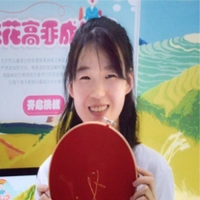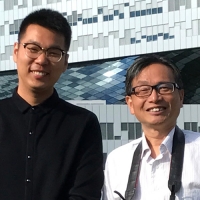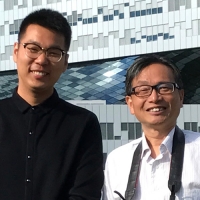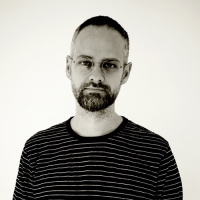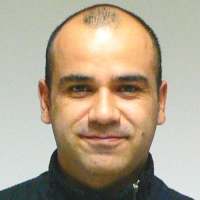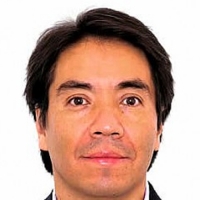Search Presenters
Information
search a presenter by name or topics to see the title/s of her/his presentation/s, and directly access to either the presentation blog space or placement into the general program.
Presenters
The author is from Huayaohua Studio, School of Design, Hunan University. The studio is dedicated to Rural Revitalization and regional cultural protection. In 2013, Hunan University established a non-heritage cultural protection base in Baishuidong Village, Longhui County, Hunan Province. Huayaohua Studio participated in the revitalization of the local countryside by means of collaborative design, improved the local economic income, and expanded the cultural influence of local traditional handicraft, which helped the inheritance and development of traditional handicraft.
Combining educational games with cultural heritage is one of the important topics of studio projects. The studio is committed to promoting the cultural identity and cultural self-confidence of rural children and exploring more new ways for rural children to inherit traditional crafts.The project is funded by the Department of Development Planning, Ministry of Education
P.R.C, under project No. (2017)304; Qipai Intangible Cultural Heritage Protection and Research Fund, Academy of Arts &Design, Tsinghua University, under project No. (2015)05.
ID Number:412724199405024181
Posters:
Additional Info
- Affiliation .
Yun-ting Gao is a qualified designer with a master degree and over 10 years of freelance design experience. Gao is also a multidisciplinary researcher with core focus on design for sustainability, art theory and design higher education. Gao previously worked as international seaman and club singer, and currently working as a executive director, researcher and teacher at the green environment art design research center in Guangdong Baiyun University, based in Guangzhou. His academic opinions: sustainability should keep pace with function, which is a basic essential content that must be considered in design; Design without sustainable attribute is not a design; the integration of ecology and emotion under the sustainable framework will be another starting point for the development, deepening and popularization of sustainable design. Gao current key scientific research project, called “Research on Sustainable Architecture Design Based on Humanistic Perspective” began in April 2017. So far, Gao have presided over and participated in more than 10 scientific research projects, completed more than 10 design projects, and published nearly 30 academic papers, some of which have won Chinese high-level awards or been included. His representative monograph is “Humanistic Connotation of Green Interior Environment Design”.
Posters:
Additional Info
- Affiliation .
Zhang Yao,Doctor of Academy of Arts and Design, Tsinghua University,Research direction: The theory of sustainable environmental design.
Posters:
Additional Info
- Affiliation .
She is a Master's student in industrial design engineering at Jiangnan University and currently studies service design and social innovation in the field of positive welfare.She has obtained a bachelor's degree in the Industrial Design Institute of the Nanjing University of Art, and studied the product design.She has extensive experience in product design, interactive design and service design, and has won two patents for utility models and several design awards.She has participated in a number of collaborative projects, including Colgate Campus Design Project, Tan Carpenter Design R & D Project, Wuxi KEYIHUI Society Public Service Project, Hotel New Retail Design Project and etc.
Oral Presentations:
Product-service system design of household medical waste management for diabetics
Additional Info
- Affiliation .
Zhou Haoming, Doctor, Professor, Doctoral Supervisor at Academy of Arts and Design, Tsinghua University. Director of Research Institute of Sustainable Design, Research Center for Art and Science, Tsinghua University, Research direction: The theory of sustainable environmental design.
Posters:
Additional Info
- Affiliation .
Angus Donald Campbell is the Head of Department and Senior Lecturer at the Department of Industrial Design, Faculty of Art, Design and Architecture (FADA) at the University of Johannesburg (UJ). He is a qualified industrial designer with a Masters degree and over 15 years of university lecturing, research and freelance design experience. His design research focuses on innovation at the nexus of social, ecological and technological systems within the South African context. This is evidenced through multiple publications, conference papers and postgraduate student supervision.
Campbell’s Masters in Industrial Design (Technikon Witwatersrand, 2003) focused ondeveloping new stylistic possibilities for African product design inspired by African cultural heritage and foregrounded his current transdisciplinary Doctorate in Development Studies (UJ) focused on technology innovation by small-scale urban farmers in Johannesburg. He is a co-founder and coordinator of the Design Society Development (DSD) DESIS Lab heading up the lab's LOCAL Design in the Global Southresearch focus area. He was a co-founder of the Izindaba Zokudla (Conversations about Food) project focused on innovation in Soweto’s food system, and was a board member of the Museum of African Design (MOAD), before it closed in 2017. For more information please visit: www.angusdonaldcampbell.com
Additional Info
- Affiliation .
Leonardo Castillo, Colombian born designer from the National University of Colombia (1994). He has extensive experience in product and service design and development, with emphasis on innovation, design and sustainability. In Japan, he worked as a researcher in the field of Computer Human Interaction design at the Kyoto Institute of Technology, (1997-1999). He completed his Master's in Architecture (2001) and PhD studies (2004) at the School of Human and Environmental Studies, both at Kyoto University. After a short internship at United Nations University he moved to Brazil in 2014. He has been a consultant in design innovation for several organizations. He participated in projects for Positivo, Nokia, The Brazilian Ministry of Education, Coca-Cola, and Fiat. He was a postdoctoral fellow in the field of Design and Innovation for Sustainability at TU.Delft University, in the Netherlands(2011-2012). He currently lives in Recife, Brazil, where he is Professor at the Design School, Federal University of Pernambuco, UFPE, and Professor of design at the Center for Advanced Studies of Recife, CESAR. He is the head of the Research Group on Innovation, Design and Sustainability. His research interests are Design for Sustainability, Service Design and Interaction Design.
Additional Info
- Affiliation .
Circular Economy-CE is a systemic change that builds resilience in the long term and creates business opportunities
and innovative solutions for the economy, providing environmental and social improvements. However, CE guidelines
do not include how to deal with the systemic design of ‘circular relations’ involving the low-income population
as promoters and actors of sustainable development, imperative in emerging economies such as Brazil. This article
investigates the lack of theoretical and practical structures, in the convergence between CE and design, which may
guide the design of circular, systemic relations for socio-ethical development, proposing a bibliographic review of the
CE concepts and guidelines, along with a brief evolutionary description of the approaches of Design for sustainability.
Finally, present Brazilian case studies to discuss the power of organized vernacular actions for the inclusion and
social development of the marginalized members of society, favoring socioeconomic development in an ethical and
equitable way of needy communities within CE systems.
Authors: Priscilla R. Lepre, Leonardo Castillo.
Additional Info
- Affiliation es. Design Department, Politecnico di Milano
Julio Frías Peña, Graphic Communicator form the ENAP now FAD. He obtained his PH.D. in the area of innovation at Nottingham University in England. During his stay in that country he researched about innovation in products and services at the University of Cambridge and in the summer of 2005, due to the importance of his doctoral research he received a scholarship from the Sloan School of the MIT (Massachusetts Institute of Technology) . He completed his Masters in Design at Tama Bijutsu Daigaku in Tokyo Japan, and a specialty at Tokyo Zokei Daigaku. In 2015 he was recognized for a research stay at the Design Center of Stanford University. It has a published book, several book chapters and more than fifty refereed, disseminated and indexed articles. He has won the A! Prize and the Quorum prize, as well as collaborating within the design teams that won the Good Design Award. His PhD thesis was selected among the best PhD theses in England. He has been a guest member of the Intersectorial Committee for Innovation of the Federal Government. He was a member of the editorial board of the FAD-UNAM and editorial adviser of the newspaper Reforma. He is a professor of Strategic Design in the postgraduate course in Arts and Design, as well as in the Master's Degree in Industrial Design, both graduate programs from the UNAM. He is currently the Postgraduate Coordinator of Arts and Design and President of the National Design Award: Diseña México, formerly the Quorum Prize.
His research lines are: strategic design, entrepreneurship, innovation, sustainable development, education for design and design policies.
Additional Info
- Affiliation .
More...
He holds a master in industrial design at the UNAM and is part of the Medialabmx.org team.
Works with sound in it’s different manifestations , through participating in many projects as musician designer, or sound engineer. He has also collaborated in many comunitary media projects related to sound art and open source technology.
He has worked independently giving workshops related to the use of free technological tools applied to artistic projects. In this context he has presented his work in places such as “Museo de Arte Moderno de Sao Paulo”, “CCJ Sao Paulo” or “Festival Fábrica de Fallas” in Buenos Aires and Santiago, MAM-MX, Centro de Cultura Digital MX.
As musician he has collaborated with many artist , including: Marcelo Armani (Brasil), Tomás Tello (Perú), Panetone (Brasil), Constanza Piña (Chile), Marcela Armas or Gilberto Esparza (México). He is also co-founder of SUDEX, a platform for exchange and collaboration in different independent artistic projects arround south américa.
He has organized the “Fábrica de Fallas” Festival (Santiago), co-organized the “Encuentro Internacional de Prácticas Sonoras: FRICCIONES” (January 2013, Santiago), he has also worked with sound landscapes producing the collective record “Ferias libres: música y paisajes sonoros” (Jacobino Discos, 2009)
Oral Presentations:
Collectivization of Design and Digital Manufacturing: Social Laboratories
Additional Info
- Affiliation .
Fernando Rafael Calzadilla Sánchez. He’s studying Industrial Design in UAM Azcapotzalco. He was made projects with a social focus throught his career and he have exposed his work in “Museo Franz Mayer” by “Fundación GIN” and he participated in the First Interuniversity Design Workshop in Mexico City, in 2018. Previously, he have worked for the “Centro de Cultura Digital” as cultural promoter and he worked in forniture conceptualization at Artless Design in 2018. Actually, he’s studying the 9th quarter of Industrial Design Career.
Oral Presentations:
Additional Info
- Affiliation .
I was born in Mexico City on July 2, 1986. In 2004 I entered the Bachelor of Industrial Design at Universidad Iberoamericana, finishing in 2008. For 5 years I was part of the team of Lighteam S.C., where I worked as project designer in residential, commercial, heritage and historical buildings. In 2011, I studied the specialty in Architectural Lighting, Architecture Division, UNAM, in order to upgrade my knowledge in this area.
Later on in 2013 I got into Industrial Design Master at UNAM, in the area of technology. I obtained the degree with the thesis "Technological innovation for the agro-ecological production chinampera. Projects of restoration and ecological conservation of Xochimilco". My expectation towards my professional practice is to find ways to exercise design as a discipline capable of developing strategies, which might be performed regarding the current socio-environmental issues, approaching an environmental and cultural sustainability. Currently I work as a professor at the Universidad Panamericana.
Oral Presenations:
The social construction of environmental crisis and reflections on the sustainability debate
Additional Info
- Affiliation .
I was born in Monterrey Nuevo León, Mexico on May 9, 1979 and for personal reasons I have had the fortune of living multi-cultural experiences in different parts of the world and working in different sectors. I worked in green area and urban tree analysis, maintenance and management projects with the government of San Pedro Cholula and with the Arboriculutre Laboratory in the Universidad Autónoma Metropolitana. From 2012 to 2016 I worked in projects that allowed me to learn about food supply chains in Mexico. During this time, I became interested in urban agriculture, my current research interest. I am an Environmental Engineer and postgraduate student in Design and Urban Studies and Design program at the Universidad Autónoma Metropolitana. Since 2017, I have collaborated with Ambulare Comunidad Creativa and Huerto de las Niñas y de los Niños urban farm, organizing public space interventions and community outreach projects. Currently, I am researching the lived experiences in urban farms in Mexico City that I hope to expand to different cities.
Oral Presentations:
Characterization of two urban farms in the Cuauhtemoc borough of Mexico City
Additional Info
- Affiliation .

